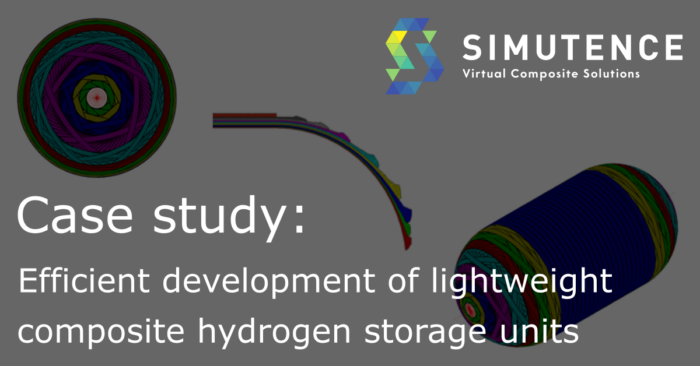
The reduction of CO2 emissions is a key driver for innovations in the global aerospace and automotive industry. Here, hydrogen fuel cells play a key role in future mobility concepts. In this regard, lightweight concepts are of high interest to optimize the maximum driving or flying range. For both, automotive and aerospace applications, hydrogen storage is a key point within the overall concept.
One of the most relevant manufacturing strategies for lightweight pressure vessels is the filament winding process. The main advantages of this process technology are its high process reliability, scalability, and the possibility to design the laminate optimized for the load case. To fully exploit these potentials, a virtual development cycle is crucial, to efficiently define a best-suited layup. In addition, virtual product development allows comparing a large number of different concepts on an equal basis and with significantly lower costs than with real-world prototyping.
SIMUTENCE is a spin-off company from the Karlsruhe Institute of Technology in Germany with a strong background in composite simulation. Within an internal study, we explored the opportunities to extend our expertise for the virtual design of composite pressure vessels.
Please feel free to check out a short wrap-up of the outcome and opportunities for virtual development cycles!
Any questions?
Do not hesitate to get in contact with us if you have any questions or if you are interested in a collaboration. We are pleased if you leave us a message!
